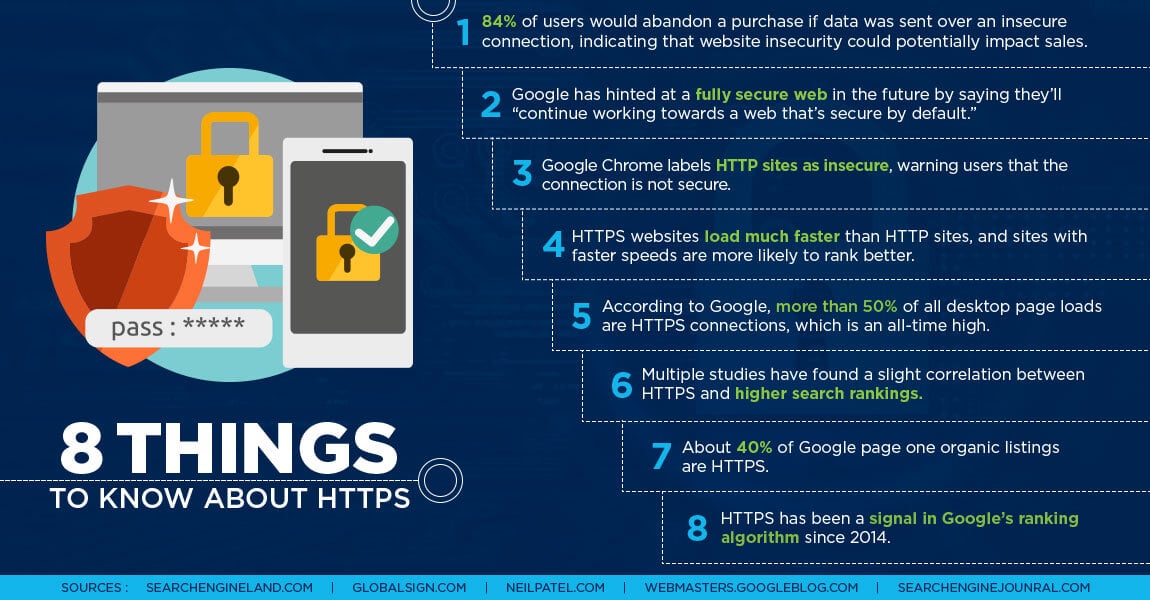HTTPS is the new boogieman under your SEO bed, and although you've been warned for years that Google may consider it a strong SEO signal, you've probably ignored it because it was never really "official." But things are about to change.
Google has officially warned that at least Chrome, its browser, will show a warning for all pages served over HTTP. Google has already sent emails warning webmasters about the change. Site owners who have forms that collect data on web pages over HTTP should know that:
Beginning in October 2017, Chrome will show the ‘Not secure’ warning in two additional situations: when users enter data on an HTTP page, and on all HTTP pages visited in Incognito mode.
What is now a simple Chrome browser signal will certainly become a strong SEO factor. In fact, according to recent statistics, more than 55% of Google’s first page (most desired) SERPs feature an HTTPS site. Which means that HTTPS matters and it is no longer a factor to ignore when you plan your SEO for your real estate business website. It should be obvious for any business today to make the transition to HTTPS, because Google has been sending smoke signals for months since January 2017.Also, keep in mind that Google doesn't always disclose what matters for ranking factors. In fact, when they say they don't consider a certain factor, you should be warned that they might.
As a real estate business owner, it is in your best interest to serve online data collection forms over HTTPS. Non-secure sites will eventually be sent to the end of the SERPs, although Google has not made any official statement in this regard. But consider the following:

The list of benefits for both users and webmasters goes on.
HTTPS signals are very important for your SEO, and although Google delays making strong statements, they have confirmed HTTPS as a ranking factor as early as 2014. SEO experts agree that you should take the warning seriously and switch before October 2017, especially if you are collecting sensitive data.
Even when you are not collecting sensitive data, a red signal from Google may turn any user away from your website, resulting in less time-on-site (and low time-on-site will harm your rankings). Also, it is already proven that sites using HTTPS have better conversions than sites that use the traditional HTTP, because, "If there’s no trust, there’s no desire to purchase."
To summarize, if you use HTTPS, Google will trust your site, and customers will trust your site too. And trust is a valuable commodity.